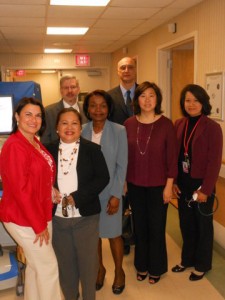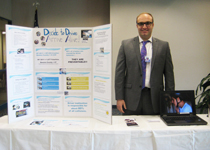 The Department of Psychiatry recently held its fifth annual child and adolescent psychiatry symposium, which focused on “The Impact of Computer Addiction and Online Social Media on Youth Mental Health.”
The Department of Psychiatry recently held its fifth annual child and adolescent psychiatry symposium, which focused on “The Impact of Computer Addiction and Online Social Media on Youth Mental Health.”
The purpose of the seminar was to educate the healthcare community about internet and video addiction among youth and how the prevalence of online social networks affects their mental health. Specifically, participants learned how to identify the symptoms of behavioral addiction to video games and the internet and how to screen for problematic video game play or internet use.
The uses of social media, as well of the risks and benefits of online social media on youth and their families were also discussed.
“This year’s conference was extremely important to the mental health community,” explained Anthony Maffia, Vice President, Department of Psychiatry, MediSys Health Network. “The prevalence of internet use and social media has not only raised concerns for our youth but for mental health care professionals as well.”
He added, “our hope is that everyone who attended this conference now has a better understanding of computer addiction and received practical clinical tips for promoting safety and healthy development in online spaces.”
Speakers for the event included Dr. Paul Weigle, Child and Adolescent Psychiatrist at Natchaug Hospital and Dr. Nicholas Carson, Child and Adolescent Psychiatrist at Cambridge Health Alliance/Harvard Medical School.














